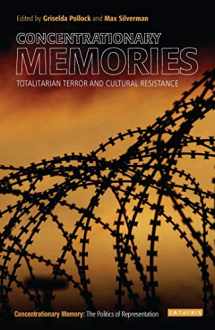
Concentrationary Memories: Totalitarian Terror and Cultural Resistance (New Encounters: Arts, Cultures, Concepts)
Book details
Summary
Description
Concentrationary Memories is based in the idea that the concentrationary plague unleashed on the world by the Nazis in the 1930s and 1940s has remained and is now a permanent presence shadowing modern life. It also argues that memory – and, indeed, art in general – must be invoked to show this haunting of the present by this menacing past so that we can read for the signs of terror and counter its deformation of the human.
The book presents political and cultural readings of film, art, photographic and literary practices, which analyses different cultural responses to concentrationary terror in the post-war period, ranging from Auschwitz to Argentina. Using multiple images, contributors including Nicholas Chare, Isabelle de le Court, Thomas Elsaesser, Benjamin Hannavy-Cousen, Claire Launchbury, Sylvie Lindeperg, Laura Malosetti Costa, Griselda Pollock, Annette Wiewiorka, and John Wolfe Akerman show how those involved in the cultural production of memories of the horror of totalitarianism sought to find forms, languages and image systems that could make sense of and resist the post-war condition in which, as Hannah Arendt famously stated, 'everything is possible' and 'human beings as human beings become superfluous'.


We would LOVE it if you could help us and other readers by reviewing the book
Book review



